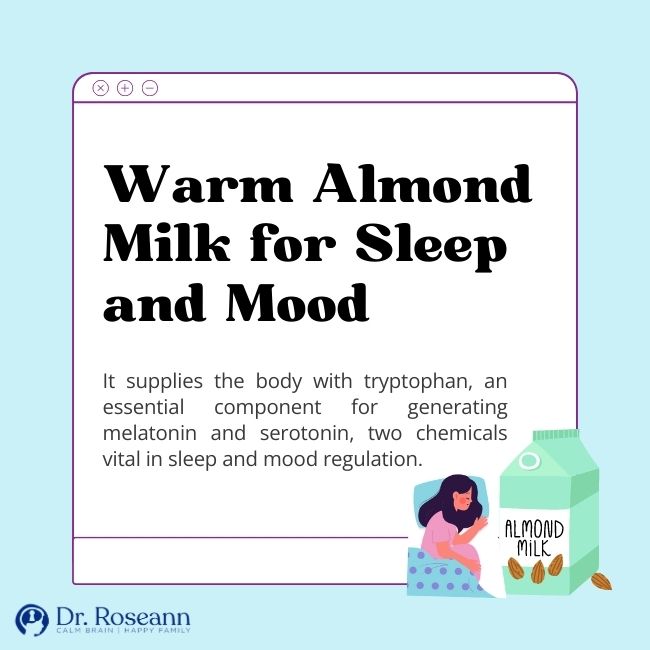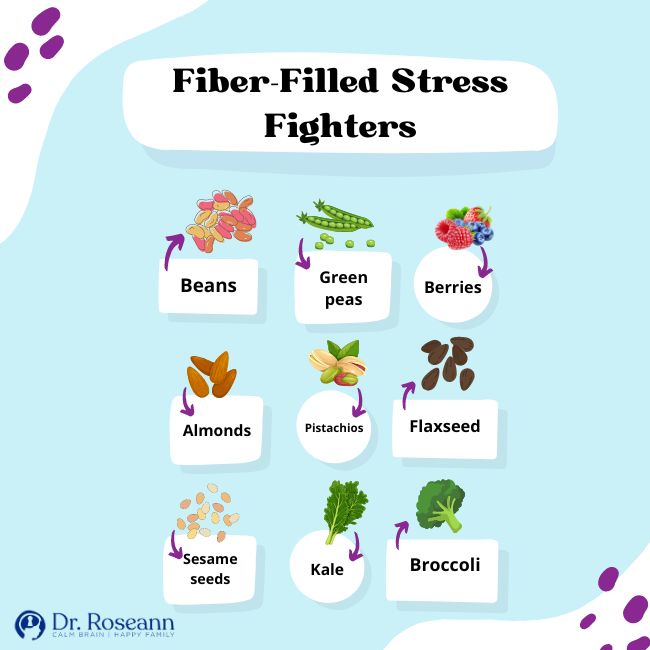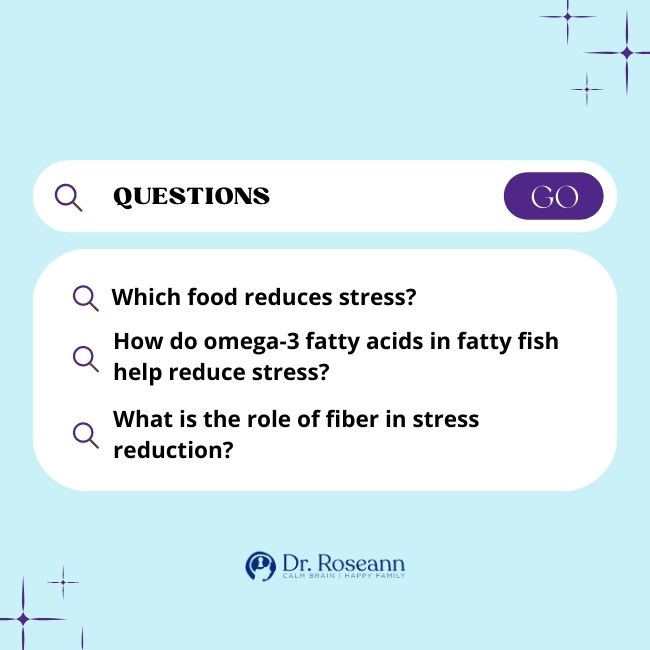In today's fast-paced world, stress is an everyday companion. But which food reduces stress? There are certain foods that you can eat to help alleviate stress and promote overall mental well-being. Discover the power of nourishing your body and mind with these ten stress-relieving foods, which can help you sail through even the most challenging days.
Stress-Relieving Superfoods
The impact of certain foods on our bodies goes beyond just satisfying hunger. Some foods contain essential nutrients that can help reduce stress hormone cortisol levels and induce relaxation, ultimately influencing our body's response to chronic stress in children and adults.
So, what better way to combat daily stressors than by incorporating healthy eating habits into your routine? Antioxidants, vitamins, and minerals can help reduce stress levels.
Leafy Greens
Leafy greens, often hailed as superfoods, are abundant in vitamins, minerals, and fiber, which help to combat high blood pressure and enhance overall mental health. Folate in leafy greens contributes to dopamine production, a brain chemical that fights stress and anxiety and may contribute to a feeling of pleasure.
Moreover, these nutrient-dense greens have been shown to protect against cognitive decline, supporting optimal brain functioning and balancing blood sugar levels. So fill your plate with spinach, kale, or Swiss chard, and give your brain a well-deserved boost!
Fatty Fish
Among the foods that contain omega-3 fatty acids are salmon and tuna, also known for their stress-reducing properties. These essential fatty acids not only help to alleviate depression but also balance the body's stress response, safeguarding against heart disease. Fatty fish consumption can also reduce cortisol levels, providing a sense of calm and serenity.
If you prefer plant-based alternatives, some heart-healthy foods that are omega-3-rich include:
- Seaweed
- Chia seeds
- Flaxseeds
- Walnuts
Consuming these foods can help reduce stress and promote a more tranquil mind.
Whole Grains
Whole grains offer a plethora of nutrients for mental health, including tryptophan, which is essential for the body's production of serotonin and melatonin, two chemicals significant in sleep and mood regulation.
These complex carbohydrates help reduce bad cholesterol levels, raise good cholesterol levels, decrease insulin levels, and create a feeling of satiety that can be useful for weight management.
So, what sets complex carbs apart from simple carbs? Complex carbohydrates contain vitamins, minerals, and fiber, resulting in slower digestion and a lesser immediate effect on blood sugar levels.
Indulge in whole rye, buckwheat, or brown rice, and let these wholesome grains pave the way to a more balanced mood.
Calming Beverages
Sometimes, it takes a soothing beverage to wash away the day's stress. These calming drinks, like herbal teas and warm almond milk, can help reduce stress and promote relaxation.
One such beverage, green tea, contains brain-boosting flavonoids, which may support memory, learning, and cognitive function.
Herbal Teas
Herbal teas have long been recognized for their natural anti-inflammatory compounds and potential stress-relieving benefits. Chamomile tea, for instance, possesses sedative and muscle-relaxing qualities that can reduce stress.
Other teas, such as lemon balm, lavender, and passionflower, contain antioxidants that may help protect against stress and induce relaxation. So, brew a cup of your favorite herbal tea, take a deep breath, and let your worries dissolve with every soothing sip.
Warm Almond Milk

There's a reason why warm almond milk is often associated with a good night's sleep. Calcium-rich and rich in vitamin D, almond milk supplies the body with tryptophan, an essential component for generating melatonin and serotonin, two chemicals vital in sleep and mood regulation (Mirrahimi et al., 2011).
Moreover, almond milk contains Latium, a protein that calms the body by lowering blood pressure. So, if you're struggling with stress or sleep, pour yourself a glass of warm almond milk and let its soothing properties guide you to a peaceful slumber.
Antioxidant-Rich Foods
Combat stress and support overall health by incorporating antioxidant-rich foods into your diet. These powerful nutrients help fight stress, reduce inflammation, protect cells from damage, and bolster the immune system. The following antioxidant-rich foods offer a stress-relieving and health-promoting experience.
Dark Chocolate
Dark chocolate is a delicious treat and a powerful stress reliever. It has been known to help relieve stress by lowering the cortisol level in the body. Consuming dark chocolate has been linked to reduced levels of stress hormones in the body, making it an effective means of stress management (Wirtz et al., 2014).
Consuming one-fourth of a small dark chocolate bar (approximately 1 oz) per day is suggested for optimal benefits. So savor dark chocolate, knowing you're treating your mind and body to much-needed stress relief.
Berries
Berries, particularly blueberries, contain antioxidants and vitamin C, which may help reduce stress by improving brain function and lowering blood pressure. Additionally, they may help prevent the release of cortisol, potentially easing feelings of anxiety and depression.
Vitamin C, found in berries, helps to normalize blood pressure and cortisol levels in the body, further contributing to stress reduction. So enjoy a handful of these vibrant, stress-fighting citrus fruits and reap the benefits of a calmer, more focused mind.
Mood-Boosting Snacks
When stress levels are high, it's important to have mood-boosting snacks to help lift your spirits and maintain your mental well-being. From nuts and seeds to fatty fish and green tea, these nutrient-rich foods offer essential vitamins, minerals, and healthy fats to support mood regulation and reduce stress.
Nuts
Nuts, such as almonds, pistachios, and walnuts, are rich in antioxidant vitamin E, mineral zinc, and B vitamins, which may assist the body in managing stress. Nuts are packed with essential nutrients such as magnesium and provide a convenient, stress-busting snack that can be enjoyed anytime, anywhere. Just limit servings to a small handful per day to prevent excessive calorie intake.
Avocado
Avocados contain omega-3 fatty acids, which reduce stress and anxiety, enhance concentration, and elevate mood. Apart from omega-3 fatty acids, avocados have phytochemicals, fiber, and essential nutrients.
Incorporate avocado into your daily diet, whether on toast, in a salad, or as delicious guacamole, and enjoy the mood-enhancing benefits of this versatile, nutrient-rich fruit.
Gut-Healthy Probiotics
Gut health plays a significant role in mood, emotions, and psychological health, so nourishing the gut with probiotic-rich foods is important. Probiotics are beneficial bacteria that bolster the immune system, guard against harmful bacteria, and enhance digestion and nutrient absorption. In addition, these friendly microbes generate neuroactive molecules like serotonin and gamma-aminobutyric acid (GABA) that impact mood (Zhang et al., 2020).
Probiotics are plentiful in Greek yogurt, and other dietary sources include kefir and fermented foods such as kombucha and miso. Incorporating these gut-healthy foods into your diet supports your digestive system and mental well-being.
Fiber-Filled Stress Fighters

Eating fiber-rich foods can help lower stress and anxiety by fighting inflammation and balancing blood sugar levels. Some examples of fiber-rich foods include:
- Beans
- Green peas
- Berries
- Almonds
- Pistachios
- Flaxseed
- Sesame seeds
- Kale
- Broccoli
These foods reduce stress and provide essential nutrients for overall health. Maintaining steady blood sugar levels can help balance blood sugar and prevent:
- fatigue
- anxiety
- shaking
- irritability
- difficulty focusing
These are common consequences of blood sugar crashes. So fill your plate with these fiber-filled stress fighters and experience the calming effects of a well-balanced diet.
Foods to Avoid During Stressful Times
While it's crucial to include stress-relieving foods in your diet, it's equally important to avoid certain foods that can exacerbate stress levels, especially when you or your child already are dealing with a clinical issue. Here are some foods that should be limited or avoided during stress.
- Sugary foods
- Processed carbohydrates
- Fried and fast foods
- Refined cereals
- Candy
- Pastries
- High-fat dairy products
Consumption of these foods can lead to elevated blood sugar levels, increasing stress and anxiety. Instead, focus on planning meals, supplying healthy snacks, and purchasing fresh, whole foods to promote a healthy diet and support stress management.
Managing stress levels is an essential aspect of maintaining overall health and well-being. Combat stress and promote mental wellness by incorporating stress-relieving foods, calming beverages, mood-boosting snacks, and gut-healthy probiotics into your daily routine. So embrace the power of nutrition, nourish your body and mind with these stress-fighting foods, and experience a positive impact on your overall well-being.
Frequently Asked Questions
What foods are good for stress and anxiety?
Foods rich in complex carbohydrates, magnesium, and zinc, such as oatmeal, quinoa, leafy greens, legumes, nuts, seeds, whole grains, oysters, cashews, liver, beef, and egg yolk, can help reduce stress and anxiety. Drink plenty of water to avoid mild dehydration and its effect on mood.
What reduces stress fast?

Exercise, meditation, a healthy diet, laughter, connecting with others, assertiveness, yoga, and getting sleep can help reduce stress relatively quickly. These activities can be done in the comfort of your own home or with the help of a professional. These lifestyle changes can be tailored to meet your needs and can be done in as little as 10 minutes daily.
Which food reduces stress?
Eating foods high in antioxidants, like blueberries, dark chocolate, and salmon, can help reduce stress naturally.
How do omega-3 fatty acids in fatty fish help reduce stress?
Omega-3 fatty acids in fatty fish can help reduce stress by alleviating depression and balancing the body's stress response, protecting against potential heart disease, particularly heart rate issues.
What is the role of fiber in stress reduction?
Eating fiber-rich foods can help reduce stress by fighting inflammation and balancing blood sugar levels, making it an essential part of a healthy lifestyle.
Parent Action Steps
- Incorporate stress-relieving superfoods such as green leafy vegetables, fatty fish, whole grains, and calming beverages into your diet to reduce cortisol levels.
- Enjoy nutrient-rich snacks like nuts and avocado for mood regulation, or opt for antioxidant-rich foods like dark chocolate to lower cortisol levels.
- Avoid sugary, processed, and fried foods during stressful situations to maintain healthy blood sugar levels.
- Get more info on Neurotastic™, Multi-Mag Brain™ Formula Magnesium Supplement for Brain Health
Citations
Mirrahimi, A., Srichaikul, K., Esfahani, A., Banach, M. S., Sievenpiper, J. L., Kendall, C. W. C., & Jenkins, D. J. A. (2011, January 1). Chapter 18 – Almond (Prunus dulcis) Seeds and Oxidative Stress (V. R. Preedy, R. R. Watson, & V. B. Patel, Eds.). ScienceDirect; Academic Press. https://www.sciencedirect.com/science/article/abs/pii/B9780123756886100180
Wirtz, P. H., von Känel, R., Meister, R. E., Arpagaus, A., Treichler, S., Kuebler, U., Huber, S., & Ehlert, U. (2014). Dark Chocolate Intake Buffers Stress Reactivity in Humans. Journal of the American College of Cardiology, 63(21), 2297–2299. https://doi.org/10.1016/j.jacc.2014.02.580
Zhang, N., Zhang, Y., Li, M., Wang, W., Liu, Z., Xi, C., Huang, X., Liu, J., Huang, J., Tian, D., Mu, J., Liao, X., & Zhai, S. (2020). Efficacy of probiotics on stress in healthy volunteers: A systematic review and meta‐analysis based on randomized controlled trials. Brain and Behavior, 10(9). https://doi.org/10.1002/brb3.1699
Always remember… “Calm Brain, Happy Family™”
Are you looking for SOLUTIONS for your struggling child or teen?
Dr. Roseann and her team are all about solutions, so you are in the right place!
There are 3 ways to work with Dr. Roseann:
You can get her books for parents and professionals, including: It’s Gonna Be OK™: Proven Ways to Improve Your Child’s Mental Health, Teletherapy Toolkit™ and Brain Under Attack: A Resource For Parents and Caregivers of Children With PANS, PANDAS, and Autoimmune Encephalopathy.
If you are a business or organization that needs proactive guidance to support employee mental health or an organization looking for a brand representative, check out Dr. Roseann’s media page and professional speaking page to see how we can work together.
Dr. Roseann is a Children’s Mental Health Expert and Therapist who has been featured in/on hundreds of media outlets including, CBS, NBC, FOX News, PIX11 NYC, The New York Times, The Washington Post,, Business Insider, USA Today, CNET, Marth Stewart, and PARENTS. FORBES called her, “A thought leader in children’s mental health.”

She is the founder and director of The Global Institute of Children’s Mental Health and Dr. Roseann Capanna-Hodge. Dr. Roseann is a Board Certified Neurofeedback (BCN) Practitioner, a Board Member of the Northeast Region Biofeedback Society (NRBS), Certified Integrative Medicine Mental Health Provider (CMHIMP) and an Amen Clinic Certified Brain Health Coach. She is also a member of The International Lyme Disease and Associated Disease Society (ILADS), The American Psychological Association (APA), Anxiety and Depression Association of America (ADAA) National Association of School Psychologists (NASP), International OCD Foundation (IOCDF) International Society for Neurofeedback and Research (ISNR) and The Association of Applied Psychophysiology and Biofeedback (AAPB).
© Roseann-Capanna-Hodge, LLC 2023
Disclaimer: This article is not intended to give health advice and it is recommended to consult with a physician before beginning any new wellness regime. *The effectiveness of diagnosis and treatment vary by patient and condition. Dr. Roseann Capanna-Hodge, LLC does not guarantee certain results.













